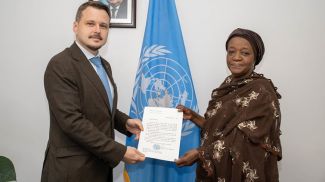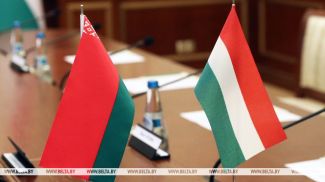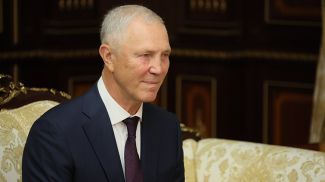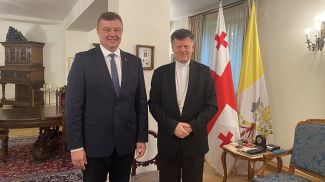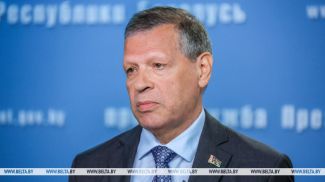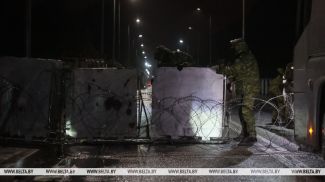MINSK, 7 December (BelTA) – Ambassador Extraordinary and Plenipotentiary of Belarus to Bulgaria Aleksandr Lukashevich held a briefing for representatives of Bulgarian mass media on 7 December. The migrant crisis was one of the matters covered by the briefing, the Belarusian Ministry of Foreign Affairs told BelTA.
The diplomat said: “I will answer the key question right away: the migrant crisis at Belarusian borders emerged through no fault of Belarus. People leave their homes in war-torn countries in search of a better future. Belarus didn't force them to do it. The thoughtless policy of Western countries, which had started wars and conflicts in countries of the migrants, did.”
In his words, the current migrant crisis was catalyzed by actions of the European Union, which terminated all the joint projects involving Belarus and designed to reinforce and manage borders, create and upgrade facilities for accommodating illegal migrants. “Since April 2021 we've repeatedly contacted the European Commission with a proposal to arrange consultations about the matter but unfortunately the European Union persistently refuses to have such a dialogue and politicizes the problem. As a result the Belarusian side, which faces economic sanctions, cannot stem the flood of migrants and refugees on its own,” Aleksandr Lukashevich stated.
Instead of establishing constructive interaction and in violation of provisions of the 1951 Convention Relating to the Status of Refugees, in violation of international humanitarian law Polish and Lithuanian authorities resort to the tactic of violently pushing migrants back to Belarus. “Regretfully, some have even been killed,” the ambassador stated.
Expanding on the context, the ambassador mentioned the events that occurred at the Belarusian-Polish border on 16 November. He said: “It was utmost cynicism on the part of Poland. Polish military used water cannons, tear gas, and stun grenades against refugees. In some cases water cannons were used to disperse chemicals, which are designed to kill insects and have a strong irritant effect.”




Another mass media briefing took place in Kazakhstan. It was focused on the 30th anniversary of Belarus-Kazakhstan partnership. Apart from the bilateral agenda, discussion about results and prospects of many years of cooperation between the two countries Ambassador Extraordinary and Plenipotentiary of Belarus to Kazakhstan Pavel Utyupin also talked about the refugee situation at the Belarusian-Polish border and the Belarusian-Lithuanian border.
Incessant attempts to demonize Belarus and make the country look like the key source of tensions in the region were mentioned. The collective West has chosen a new tactic: artificial escalation of the situation at the border, escalation of the military political situation in the Eastern Europe region as a motive for justifying the buildup of NATO's military presence near Belarusian borders, near the external border of the Union State of Belarus and Russia.
Pavel Utyupin noted that the West turns a blind eye to the fact that the migrants seeking shelter in the European Union are people, who have lost their homes, property, and means of subsistence as a result of the destructive policy of the European Union and the USA. Events in Syria, Libya, Iraq, and Afghanistan have convincingly demonstrated that introducing democracy through force leads only to chaos, devastation, and destabilization, brings sorrow and suffering to entire nations.



While the refugee crisis continues, the West introduced yet another package of sanctions against Belarus.
Participants of the briefing were made familiar with the text of the speech Belarusian Minister of Foreign Affairs Vladimir Makei made at a session of the OSCE Ministerial Council in Stockholm, Sweden on 2 December 2021 and a book about the crimes Poland and Lithuania had committed against refugees.




